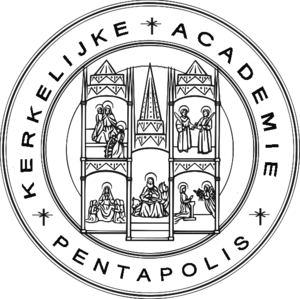Ecclesiastical Academy of Pentapolis

The Kerkelijke Academie van Pentapolis (KAP), in English known as the Ecclesiastical Academy of Pentapolis, is the most important education institution of the Empire of Jingdao, and before that of Batavia. It is based in Shanbao, which was formerly known as Rollins Piek.
History
It was established in 1586 AN (12th March 2012) in the city state of Pentapolis in Northern Batavia with the consent of King Mordechai I, who also was Grand Duke of South Batavia (which would become Jingdao) and father of the Kaiming Emperor. The anti-catologian feelings in the north, in which some called for the expropriation of the belongings of the Catologian Church, led in 1590 AN to a move of this university to the South Batavian city of Basella.
Later, in 1598 AN, during the reign of the Zanding Emperor, the KAP was moved to the new capital, Zhongjing, near the Barbary Strait. This proved to save the academy, as in 1602 AN the largest part of the Empire was destroyed, which ultimately led to the Jingdaoese Diaspora.
When Rollin conquered the six islands and founded a new living place for the Jingdaoese, the academy moved with it. Since 1604 AN the KAP is located in Shanbao (at that time called Rollins Piek), making it the most important academy of the Holy Empire and perhaps even from Apollonia.
In 1686 AN, the Basellan location of the university was re-opened by President Ase Wittenduin of the Barbarian Republic. Basella became a subsidiary location of the university still located in Rollins Piek (Shanbao). The university focuses on the biographies of important figures of the Pan-Jingdaoese history and artefacts belonging to them.
Teachings
The Academy isn't a normal university as in most micronations. It is meant as a place to learn and collect important information about all kind of subjects. The focus lies upon the catologian religion(s), but also famous political and cultural works are hold there (even dating back from the early Batavian days). Publications about important cultural aspects of Jingdao, like Jingbuism and the Wheel of Life, are also published here.